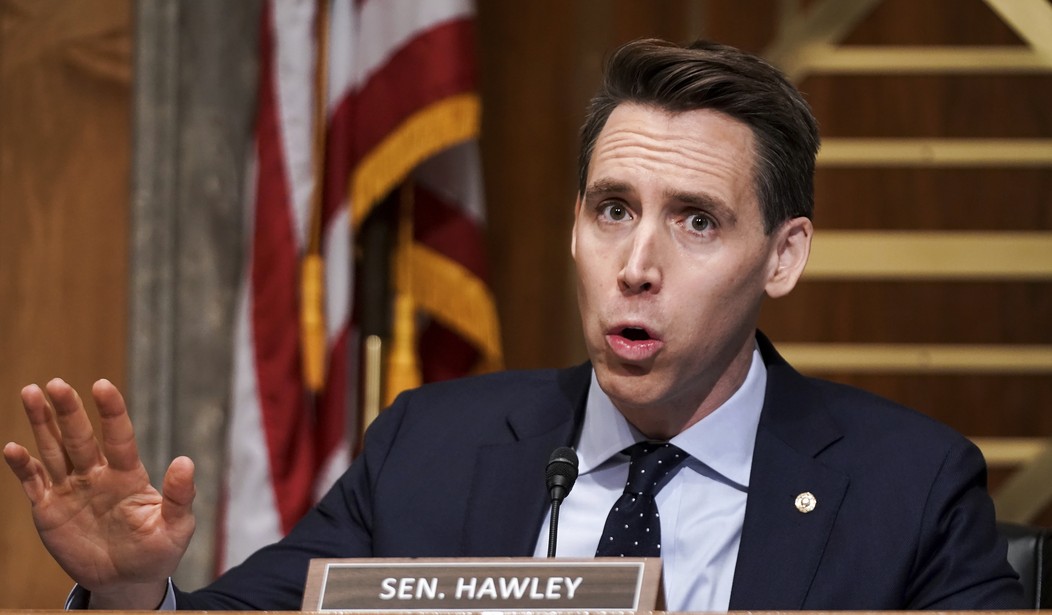Sen. Josh Hawley (R-MO) recently reacted to the announced closure of a prominent aluminum manufacturer in Missouri by making an odd request of President Joe Biden. In a letter, he asked that the president use the Defense Production Act (DPA) of 1950 to compel the company to remain open so it can continue producing its wares.
However, Hawley’s letter raises questions about the extent of the president’s power, and whether the state should be empowered to make such a move.
In the letter, Hawley addressed the announced closure of Magnitude 7 Metals, explaining that this would be “a devastating blow to working families and good-paying union jobs in my state.” The lawmaker also pointed out that the company accounts for “nearly 30 percent of the nation’s primary aluminum production” and that its loss would “put more than 500 workers out of a job.”
Hawley also argued that allowing the plant to shut down would hamper the U.S. military. He insisted that if the company closes, it would “materially degrade our defense posture,” and noted that the Defense Department “has deemed aluminum a strategic material of interest.”
However, Hawley’s proposed solution is not within the president’s purview, nor should it be.
For starters, it’s essential to understand what the DPA is--and what it can and cannot do. The DPA grants the White House extensive powers to direct domestic industry when it is in the interest of national defense – especially during wartime. It empowers the president to ensure the timely production of essential materials that might be needed for national security and emergency preparedness.
Under the legislation, the president can mandate that businesses prioritize government contracts and orders over private interests, as long as the materials and services are required for national defense. It can include directing companies to produce products or services that are required by the military to conduct its operations. The president can also allocate or control general distribution of certain materials and offer incentives to expand production.
However, the DPA was never intended to be used to bail out a failing company or force a business to remain open – especially when the country is not engaged in a full-scale war. Allowing the state to do this would set a troubling precedent and lead to a slippery slope in which the government expands its involvement in the free market. It is already bad enough that companies know they will be bailed out if they make faulty decisions. Using the DPA to this end will only make the problem worse.
In November 2023, President Joe Biden used the act to push for green energy.
The Biden administration, day by day, not only seems to have less regard for the rule of law but seems now to have just abandoned any pretense of such regard. In an ongoing crackdown on natural gas and oil-fired home heating, last Friday, the administration invoked the 1950 Defense Production Act to push for funding of green energy technologies. Specifically, the administration has called for electric heat pumps for home heating.
In a joint announcement with the White House, the Department of Energy (DOE) said the federal government would award a "historic" $169 million for nine projects across 15 sites nationwide in an effort to accelerate electric heat pump manufacturing. The significant level of funding was made possible after Biden utilized the 1950 Defense Production Act (DPA) to increase domestic production of green energy technologies.
"Getting more American-made electric heat pumps on the market will help families and businesses save money with efficient heating and cooling technology," said Energy Secretary Jennifer Granholm. "These investments will create thousands of high-quality, good-paying manufacturing jobs and strengthen America’s energy supply chain, while creating healthier indoor spaces through home-grown clean energy technologies."
It's important to note that these "investments," which translates to "pouring millions of your taxpayer dollars down green energy sinkholes," almost never work out as planned.
READ MORE: Biden Uses Cold-War Era Defense Production Act to Push Green Technology
Moreover, the notion that the White House should carry this level of authority is a frightening concept from a liberty perspective. If someone no longer wants their business to remain open, the government should not possess the power to interfere with that decision. The president should never have the power to unilaterally act to keep a company afloat. If the plant does go out of business, the free market will fill the void. There are likely plenty of companies that would relish the opportunity to step up in this regard.
Limited government means exactly what it says: Not allowing the state to possess too much power. The federal government is already bloated enough. We do not need lawmakers trying to find ways to expand it even further. Indeed, isn’t it time for the federal government to shrink instead of grow?












Join the conversation as a VIP Member